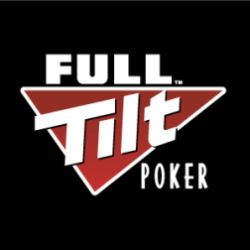Full Tilt Granted Internet License By Danish Gambling Authority

On May 13th, Full Tilt was given permission to rejoin Denmark’s online gambling market after it was granted a license to offer its product by the country’s Gambling Authority. As a result, Danish players will soon be able to access the site via its FullTilt.dk platform, and commenting on the development Full Tilt managing director, Dominic Mansour, remarked:
“We are excited that Danish players are now able to play both casino and poker games on Full Tilt. Danish players are able to create their stories on Full Tilt and compete against players from around the world.”
UK And Now Denmark
PokerStars purchased Full Tilt in 2012, and while this year the site’s new owner, Amaya Gaming, acquired a license to operate in the UK, it had thus far refrained from applying for iGaming licenses in a number of other important European markets, including France, Spain, Italy, Belgium, Estonia, and Denmark. It is therefore telling that the Northern European country of 5.6 million people has become Full Tilt’s second licensed port of call as its booming iGaming industry has been a success since 2012 when its market was opened up to foreign competition. All this despite Denmark imposing a restrictive 20% gross gaming revenues tax and a 28% corporate tax on gambling companies, in addition to a flexible gaming fee of up to DKK 1.5 million ($228,000) they must pay, depending on the revenues they collect each calendar year.
Booming Market
The Denmark Gambling Authority has thus far awarded a total of 114 licensees to iGaming operators, with one of the attractions of the Danish market being that its domestic poker players are able to compete with other players from across the globe, unlike the ring-fenced markets of places such as Spain, Italy and France. The success of Denmark’s progressive iGaming model is even reflected in the country’s gross gaming revenues which reached DKK 7.75 billion ($1.1 billion) in 2014, up 2% from the estimated DKK 7.575 billion generated in 2013, and up 3% from the DKK 7.5 billion for 2012.
Denmark’s top nine iGaming operators with state-issued licenses are PokerStars, partypoker, bwin, Unibet, Betsson, Danske Spil, ParadisePoker, NordicBet, and Scandic Bookmakers. Collectively, these sites generated DKK 2.855 billion ($400m) in gross gaming revenue last year, 20% up on the DKK 2.375 billion collected in 2013, and 40% up on the DKK 2.045 billion ($330 million) generated in 2012.
Full Tilt Avoids Ring-Fenced Markets
PokerStars is the world’s biggest online poker room, with the site operating both in regulated open markets, such as the UK and Denmark, as well as those permitting just segregated poker pools, such as Italy and France. Full Tilt, on the other hand, has a strategy of only entering markets which allow players to compete against opponents from outside the country’s borders. Despite the different approach, Full Tilt has still managed to become the fifth largest online poker rooms on the planet, with an average of 1,250 cash players over a 7-day period according to PokerScout, behind such internationally recognized brands as PokerStars (16,000), 888poker (2,000), Bodog (1,700), and iPoker (1,600).
Denmark Amends Gambling Laws
Recently, Denmark introduced a package of amendments to its internet gambling laws, which are designed to grow the industry further, and attract new operators to the country’s regulated market. The set of measure expected to come into force by end of this year, include raising the licensing fee for those casinos generating a profit of more than $16 million (€13.5m) per year, and lowering it for those producing less than that amount. In the meantime, there are no expected changes to the rate of taxation levied upon these operations.
The European Commission has also granted Danish authorities approval to grant licenses for daily fantasy sports, an industry which continues to be shrouded in controversy as opinion varies as to whether it should be considered skillful and legal, or alternatively purely gambling and therefore illegal. As a result, Denmark will amend its laws to create a new daily fantasy sports annual license, with cost yet to be announced. Finally, a set of measures will be introduced to strengthen the country’s money laundering controls, whilst bringing it in line with stated EU directives.










